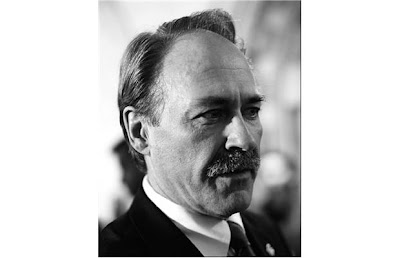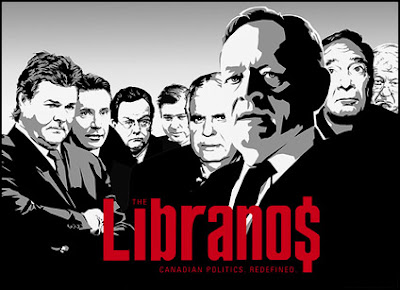Pat "Harry Callahan" Martin wants to get a hotel room to fool around a bit to get to know the Libranos!


 Stop 'pussy-footing around,' and cooperate on merger, MP Martin urges NDP, Libs
Stop 'pussy-footing around,' and cooperate on merger, MP Martin urges NDP, LibsNDP Pat Martin says parties' 'marriage' might be premature, but that they should get a hotel room 'and fool around a bit.'
By LAURA RYCKEWAERT
Monday, September 12, 2011
 With the possibility of a coalition between the Liberals and NDP once again riding the waves of political speculation, NDP MP Pat Martin says if opposition parties are serious about their own rhetoric about how "wrong" the Harper government is, they need to stop "pussy-footing around" and cooperate.
With the possibility of a coalition between the Liberals and NDP once again riding the waves of political speculation, NDP MP Pat Martin says if opposition parties are serious about their own rhetoric about how "wrong" the Harper government is, they need to stop "pussy-footing around" and cooperate."By being divided we are playing right into Stephen Harper's hands, he is counting on us bickering and squabbling just like we always have, and the only thing that probably keeps him awake at night is the specter of a united centre-left political force because that would be the end of the neo-conservative dynasty," said Mr. Martin (Winnipeg Centre, Manitoba).
Mr. Martin said after 80 years of "squabbling," it's hard for voices on both sides of the discussion to get their heads around the idea for a formal merger. But Mr. Martin said while a "marriage" between the two parties may be premature, "that doesn't mean we shouldn't get a hotel room and fool around a bit and get to know each other."
NDP leadership runner and current party president Brian Topp has said his party isn't interested in the idea of a merger with the Liberals, but did add the party won't completely drop the idea of working with others.
And while dissention undoubtedly exists between voices from within the NDP, former NDP communications Director Jamey Heath, now an author and political activist, recently published an article in The Globe and Mail discussing the merits of cooperative efforts between the Liberals and NDP and said, based on the emails he's received in response to the piece, he thinks resistance to cooperation "is wildly overstated."
"If you were to have [had] a referendum during the last election and ask[ed] people if they wanted the NDP and the Liberals to find some way to work together, I think that referendum would have passed. I think the resistance that is out there—and there's no denying that some people don't like it—is habit more than anything else," said Mr. Heath.
Mr. Martin said he has received phone calls from "fairly senior ranking people from both parties who shall remain nameless until they decide to come out publicly" who have voiced an "appetite" for cooperation.
And while a lot more people may be in favour of cooperation than has widely been perceived, discussion of NDP/Liberal merger possibilities in the media of late has demonstrated a division of opinions within both the NDP and the Liberal lines.
Liberal MP Denis Coderre (Bourassa, Quebec) has said discussion of a possible merger between the Liberals and NDP is a "valid" option.
But on August 29, Liberal MP Justin Trudeau (Papineau, Quebec) said while he's remaining open-minded and wouldn't necessarily take the possibility off the table, "I'm certainly not convinced that a merger is the right thing or the way to go."
When asked by The Hill Times whether a merger with the NDP was on his party's radar, Liberal House Leader MP Marc Garneau (Westmount-Ville-Marie, Quebec) replied: "No, it isn't...the only thing that's on our radar right now is rebuilding the Liberal party, that's what concerns us and that's the only task that we are focused on."
Interim Liberal leader Bob Rae (Toronto Centre, Ontario), in an interview with Postmedia News, said "right now" he doesn't see a merger between his party and the NDP happening. Mr. Rae, the former Ontario NDP premier, said there exist fundamental differences between the Liberals and the NDP that diminish the possibility of a merger, such as the NDP's union and labour ties.
But in an interview with Evan Solomon, host of CBC's Power and Politics, former Liberal Prime Minister Jean Chrétien said a merger between the Liberals and NDP could have unseated the Conservatives in the last election, and that now, such cooperation will either "come very quickly or not happen."
Former Cabinet Minister and recently announced candidate for Liberal party presidency, Sheila Copps, has come out against the idea of a merger, saying the party should unite internally to become a strong force against the majority Conservatives.
"I don't agree with my colleague and friend Mr. Chrétien that the only solution is merging with the Liberals and the NDP," said Ms. Copps.
And while much talk has centered around the specific possibility of a merger, Mr. Martin stressed that cooperative efforts between the two parties "could run the whole gambit, from a coalition to a non-competition pact in certain key ridings...I think we don't want to predetermine what a dialogue [about working together] might lead to by floating specific suggestions."
Mr. Martin said he personally did an analysis of the 2008 election results and "found 43 Conservative seats where if the third person had dropped off, and 50 per cent of their votes had gone to the person who finished second, that second place finisher would have defeated the Conservative." Mr. Martin said while the same hasn't been done for the 2011 election results, such findings show the real potential of cooperation that "if we're serious about defeating Harper, we're duty bound to explore."
Liberal observer Greg MacEachern, Vice-President of government relations at Environics Communications Incorporated said while the possibility of a joint Liberal-NDP effort is "fun" for the media to talk about—and undoubtedly the media have seemed to enjoy discussing the possibility—he said right now, "I just don't think it's a realistic prospect.
"I think not only is there not a desire from the Liberal party to seek a merger, from a realistic point of view, you're wondering why the New Democrats want to do it," said Mr. MacEachern.
And though some voices from the Liberal side, like Mr. Garneau, Mr. Rae and Mr. MacEachern, said they seem to feel the timing is wrong for such discussions, as the devastated Liberal party works to rebuild, others feel the current circumstances actually make it the right time for such talks.
"Both parties are in a state of transition, choosing new leaders, in a period of reflection," said Mr. Martin, who said he thinks its appropriate that the dominant NDP be the one's to extend the "olive branch" and declare their willingness to cooperate and that he will support the leadership candidate who support such efforts.
Mr. Heath heavily stressed that the current political circumstances in Quebec
make the time right for a coming-together of leftist forces, because, as he points out, uniting the left goes beyond just the NDP and the Liberals, "it involves Quebec."
Mr. Heath said the 'Orange Crush' which swept Quebec in the last election—reducing the separatist Bloc Québécois to just four MPs and garnering the federalist NDP 59 seats—means that unlike five years ago, there is real potential for left-leaning forces to cooperate.
Moreover, Mr. Heath pointed out the changed political orientation of Quebec make this round of coalition talks very different from those in years past.
Merger or coalition talks prior to the 2011 election were actively attacked by Prime Minister Stephen Harper (Calgary Southwest, Alberta) and his Conservatives, largely due to the role of the separatist Bloc Quebecois.
"You can't go back to 2008 and compare that coalition to today, and the reason is because in 2008 most Quebec MPs were separatists and today they're not....that is the absolutely critical thing to keep in mind," said Mr. Heath.
Though Mr. Garneau said the Liberal Party is focused on rebuilding, after losing official opposition party status and falling from 77 to 34 seats, Mr. Heath said the Liberals' devastating May election results shouldn't stand in the way of such discussions.
"The Liberals are always out of a devastating election. In 2004, they lost their majority, in 2006 they lost power, in 2008 everyone was like, 'Oh my God it can't get any worse than this,' well turns out it could in 2011," said Mr. Heath, adding that the party needs to recognize that politics has moved on.
"If we can build medicare and pensions together, why can't we face the challenge of the 21st century together," said Mr. Heath.
Meanwhile, former prime minister Jean Chrétien and former NDP leader Ed Broadbent have been publicly pushing for a merger between the two parties when asked about it in recent weeks and months.
lryckewaert@hilltimes.com



0 Comments:
Post a Comment
<< Home